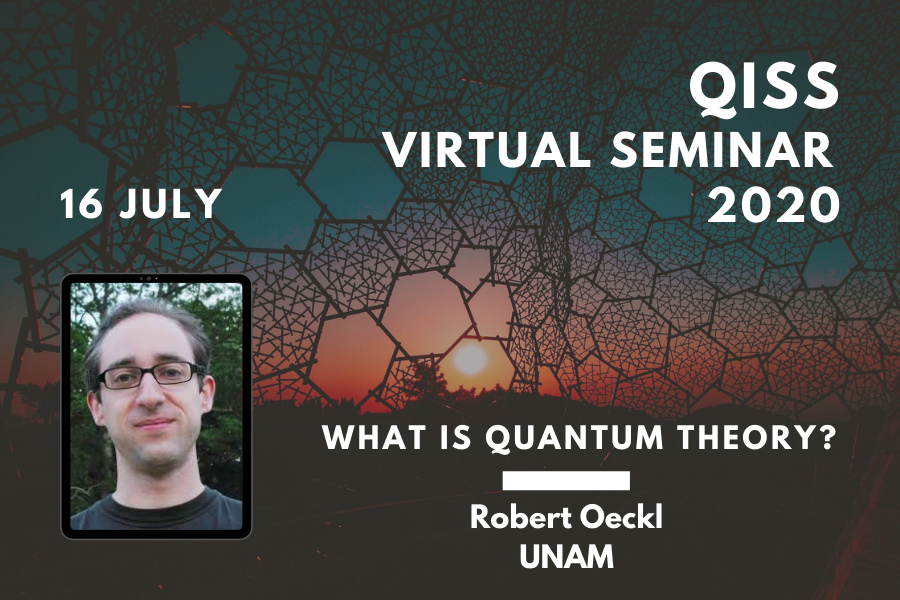HOME / WHAT WE DO / VIRTUAL SEMINARS
Robert Oeckl
Universidad Nacional Autónoma de México
What is Quantum Theory?

Abstract: The invention of quantum theory in the 1920s represented a paradigm shift in our approach to describing the natural world. The focus on the object as a primitive shifted to the observation as a primitive. At the time, the first applications of interest came with a classical description in the language of Hamiltonian evolution, canonical variables and states. Staying close to this particular language lead to the development of the quantum formalism of Hilbert spaces, operators, Schrödinger equation and Born rule. Somewhat unfortunately, this standard formulation has come to dominate our understanding of what quantum theory is. While it was successfully employed in describing the micro-structure of matter and its relevant interactions, describing the dynamics of spacetime itself is outside of its scope. With the present talk I want to promote the idea that quantum theory is much more general than this standard formulation. I aim to clarify the essence of the paradigm shift that lies at the heart of the transition from classical to quantum theory. On this basis I then review the derivation from first principles of a more fundamental formulation of quantum theory, the positive formalism, and the recovery of the standard formulation as a special case.